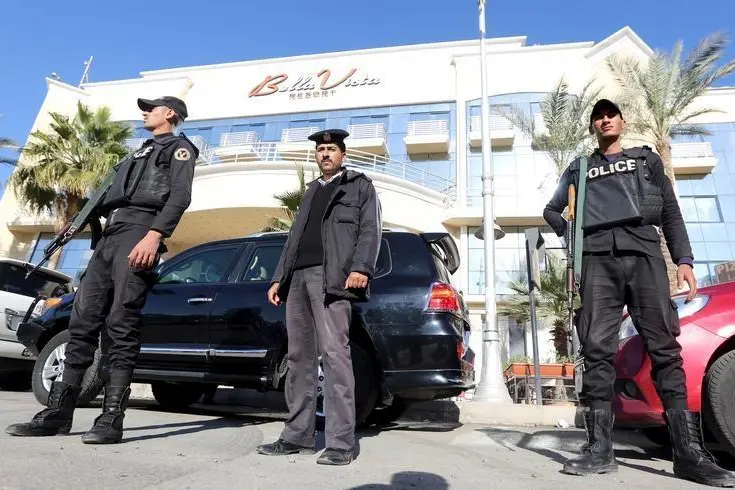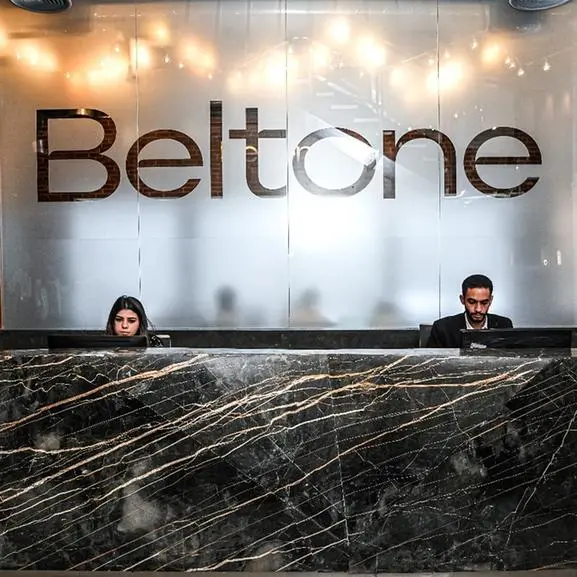PHOTO
A knife attack on tourists in Hurghada may have put an end to hopes for Egypt's winter tourism season, reports Ahmed Kotb.
The recent attack on three tourists at a hotel in the Red Sea resort of Hurghada just one day after a group of masked gunmen opened fire on a tourist bus and a hotel in Giza could be a major setback to Egypt's efforts to save its tourism industry this year.
Two assailants attacked the hotel on Friday, wounding a Swedish woman and an Australian couple with knives before being shot by the security forces, leaving one of them dead and the other injured. The wounded tourists quickly made a full recovery, according to official reports and left the hospital where they were being treated to return to their hotel.
Tourism Minister Hisham Zaazou said that the government is putting in place greater security measures to ensure the safety of all tourists visiting the country. "The welfare of tourists visiting Egypt is of the greatest importance to us and will continue to be so. No stone will be left unturned to ensure their security," he told the media during a visit to Hurghada on Saturday.
However, efforts to convince tourists that Egypt is a safe place, especially after the Russian plane crash in the Sinai Peninsula in October 2015, may not now be enough to save the winter tourism season, according to experts.
"It is a very sensitive industry, and the latest attack may have been too much for it to bear," said Ezzat Abdel-Ghaffar, head of regional internal auditing at Travco Group, a tourism company.
The prospects for tourist inflows this winter are low, he added, and occupancy rates at Red Sea hotels are expected to start going down over the next few weeks because of cancellations of reservations.
The rates have not changed this week because current visitors are continuing their vacations as normal, he said.
"The security and safety of tourists is the most important factor in any stable tourism industry," Abdel-Ghaffar stressed. He added that recent global terrorist attacks could nevertheless reduce the impact of the Hurghada incident.
Tamer Nabil, a member of the Red Sea Investors Association, said that Hurghada's hotels had occupancy rates of between 25 and 30 per cent until Monday, but he expected them to drop below 15 per cent by the end of the month as a result of cancellations.
"More than 40 per cent of reservations have been cancelled during the last few days. The winter season is lost," he added.
Germany, one of the main markets for Egypt's tourism industry, has updated its travel advice following the Hurghada attack to recommend its citizens not to go on day trips from Hurghada. Tour operators like TUI Group have followed the advice and announced that they have cancelled all day trips from the Red Sea resort until the end of January.
In November, several countries issued warnings against travelling to Egypt following the Russian plane crash. The government has been trying to convince these countries, including Russia and the UK, to cancel such warnings after enhancements of security measures at Egyptian airports.
As a result of the plane crash, the number of tourists visiting Egypt in November 2015 dropped by 37.8 per cent compared to the same month in 2014, according to Egypt's Central Agency for Public Mobilisation and Statistics.
Egypt has been doing everything possible to save the winter season, normally the high season for tourism in Egypt, especially since tourism is one of the main sources of foreign exchange, Nabil said. He added that such efforts become worthless once tourists start to feel they might not be completely safe where they plan to spend their vacation.
The Ministry of Tourism recently appointed a marketing company to take charge of promoting tourism in Egypt and to show the world how tourist safety measures are among the best in the world. Egypt is also getting ready to participate in the Berlin Tourism Fair, an opportunity to attract further tour agents and increase the flow of tourists.
Cheap prices and promotions at Egypt's resorts have helped attract Egyptian and Arab holidaymakers, but experts say these represent less than 20 per cent of the total and can never compensate for the huge numbers of foreign tourists Egypt normally receives each year.
About 4.8 million tourists visited Egypt in the first half of 2015, compared to 4.4 million in the same period of 2014, but the total number of visitors during 2015 is expected to be less than that in 2014 as a result of the attacks and the Russian plane crash.
The total number of tourists who visited Egypt in 2014 reached 9.9 million, with revenues amounting to $7.5 billion as a result. In 2010, before Egypt had entered into a period of political turmoil, the tourism sector generated revenues of $12.5 billion by attracting 14.7 million tourists.
© Al Ahram Weekly 2016





















